- Home
- Dan Simmons
Song of Kali Page 7
Song of Kali Read online
Page 7
"But I owed Sanjay much. Indeed, I began to realize that I might never be able to pay the debt I owed him. So I accompanied him on his first meeting with the Kapalikas.
"They met us in the evening in the empty marketplace near the Kalighat. I do not know what I expected — my image of Kapalikas grew out of the stories told to frighten unruly children — but the two men who waited there for us fit none of my imaginings and apprehensions. They were dressed like businessmen — one even carried a briefcase — and both were soft-spoken, refined in manner and dress, and courteous to both of us despite class and caste differences.
"The ceremonies in progress were most dignified. It was the day of the new moon in celebration of Durga, and the head of an ox was on the iron spike before Kali's idol. Blood still dripped into the marble basin beneath it.
"As someone who had worshiped Durga faithfully since infancy, I had no trouble joining in the Kali/Durga litany. The few changes were easily learned, although several times I mistakenly invoked Parvati/Durga rather than Kali/Durga. The two gentlemen smiled. Only one passage was so substantially different that I had to learn it anew:
The world is pain,
O terrible wife of Siva
You are chewing the flesh;
O terrible wife of Siva,
Your tongue is drinking the blood,
O dark Mother! O unclad Mother.
O beloved of Siva
The world is pain.
"Then large clay effigies were carried through the Kalighat in procession. Each was sprinkled with the blood of the sacrifice. Some were statues of Kali in her aspect of Chandi, The Terrible One; or as Chinnamasta, the 'she who is beheaded' of the ten Mahavidyas when Kali decapitated herself so as to drink of her own blood.
"We followed the procession outside and down to the banks of the Hooghly River, through which, of course, the waters of the Holy Ganges flow. There the idols were cast into the water in the sure faith that they would rise again. We chanted with the crowd:
Kali, Kali balo bhai
Kali bai aré gaté nai
O brethren take the name of Kali
There is no refuge except in her.
"I was moved to tears. The ceremony was so much more grand and beautiful than the simple village offerings in Anguda. The two gentlemen approved. So, evidently, did the Kalighat jagrata, for we were invited to a true meeting of the Kapalikas on the first day of next month's full moon."
Krishna paused in his translation. His voice was growing slightly hoarse. "Do you have any questions as of yet, Mr. Luczak?"
"No," I said. "Go on."
"Sanjay was very agitated all that month. I realized that he did not have the religious upbringing, which I had been so fortunate to receive. Like all members of the Communist Party India, Sanjay had to deal with political beliefs which were at war with his deeper heritage as a Hindu. You must understand that to us religion is no more an abstract 'belief' requiring an 'act of faith' than is the process of breathing. Indeed, it would be easier to will one's heart to stop beating than to will away one's perspective as a Hindu. To be a Hindu, especially in Bengal, is to accept all things as aspects of divinity and never to artificially separate the sacred from the profane. Sanjay shared this knowledge, but the thin layer of Western thought which had been grafted over his Indian soul refused to accept it.
"Once during that month, I asked him why he had bothered to seek membership with the Kapalikas if he could not truly worship the goddess. He grew angry at me then, and called me several names. He even threatened to raise my rent or call due his notes. Then, perhaps remembering our Brotherhood Oath and seeing the sorrow written on my face, he apologized.
"'Power,' he said. 'Power is the reason I have sought this, Jayaprakesh. For some time I have known that the Kapalikas hold power far out of proportion to their numbers. The goondas fear nothing . . . nothing but the Kapalikas. The thugees, as stupid and violent as they are, will not oppose someone known to be a Kapalika. The common people hate the Kapalikas or pretend the society no longer exists, but it is a hatred born of envy. They fear the very name Kapalika.'
"'Perhaps respect is the better word,' I said.
"'No,' said Sanjay, 'the word is fear.'
"On the first night of the new moon following the feast of Durga, on the first night of the celebration of Kali, a man in black met us in the abandoned marketplace to take us to the meeting of the Kapalika Society. On the way we passed down the Street of the Clay Idols, and hundreds of aspects of Kali — straw bones piercing their unfinished clay flesh — watched us as we passed.
"The temple was in a large warehouse. The river flowed beneath part of it, just as it had at the Kalighat. We could hear its constant whispering throughout the ceremony which followed.
"It was a gentle twilight outside, but very dark once we were in the warehouse. The temple was a building within a building. Candles showed the way. A few snakes moved freely across the cool floor, but it was too dark for me to tell if they were cobras, vipers, or less worrisome serpents. I thought it a melodramatic touch.
"The idol of Kali was smaller than the one in the Kalighat — but also gaunter, darker, sharper of eye, and altogether more terrible. In the dim and trembling light, the mouth seemed now to open wider, now to close slightly into a cruel smile. The statue was freshly painted. Her breasts were tipped with red nipples, her groin was dark, and her tongue was bright crimson. The long teeth were very, very white in the gloom, and the narrow eyes watched as we moved closer.
"There were two other visible differences. First, the corpse upon which this idol danced was real. We could smell it as soon as we entered the temple proper. The stink mingled with the heavy scent of incense. The cadaver was that of a man — white of flesh, bones visible under the parchment flesh, its form molded into the attitudes of death with a sculptor's skill. One eye was open slightly.
"I was not totally surprised by the presence of a body. Tradition had it that Kapalikas wore necklaces of skulls, and raped and sacrificed a virgin before each ceremony. Only a few days earlier Sanjay had joked that I might well be the chosen virgin. But now, in the darkness of the warehouse temple, with the smell of corruption in our nostrils, I was glad enough that there was no sign of such a tradition being honored.
"The second difference in the statue was less noticeable and somehow more frightening. Kali continued to raise her four arms in fury; dangling from one hand the noose, from another the skullstaff, and from on high the sword. But her fourth hand was empty. Where there should have been the effigy of a severed head, there was only empty air. The idol's fingers grasped at nothing. I felt my heart begin to pound, and one glance at Sanjay told me that he too was holding back his terror. The smell of our sweat mixed with the holy odors of incense and dead flesh.
"The Kapalikas entered. They wore no robes or special garments. Most wore the simple white dhoti so common in rural areas. All were men. It was too dark to make out any Brahman castemarks, but I assumed there were several priests there. In all, they numbered about fifty. The black-garbed man who had led us to the warehouse blended back into the shadows which filled most of the temple, and I had no doubt that there were more unseen forms there.
"There were six other initiates besides Sanjay and myself. I recognized none of them. We made a trembling half-circle in front of the idol. The Kapalikas moved in behind us and began to sing. My useless tongue barely could form responses and they were always a second late. Sanjay gave up trying to join in the litany and held a thin smile through the entire worship service. Only the whiteness of his lips gave away his tension. Both of us kept returning our glances to the empty hand of Kali.
"The song was from my childhood. I associated its sentimental lyrics with sunlight on temple stone, the promise of holiday feasts, and the scent of scattered flower petals. Now, as I sang it in the night with the smell of carrion meat filling the moist air, the words took on a different meaning:
"O Mother mine,
Daughter of the Mountain
!
"The world is pain,
Its load all bearing past;
Never pine I, never thirst,
For its kingdom vain.
"Rosy are her feet,
A shelter free of fear;
Death may whisper — I am near;
She and I shall smiling meet.
"The service ended abruptly. There was no procession. One of the Kapalikas stepped onto the low dais below the idol. Now that my eyes had adjusted to the dark, I thought I recognized the man. He was an important figure in Calcutta. He would have to be important if I could know his face after only a few months in the city.
"The priest spoke softly. His voice was almost lost against the sound of the river. He spoke of the sacred society of the Kapalikas. Many are called, he intoned, but few are chosen. Our time of initiation, he said, would cover a period of three years. I gasped as he said this, but Sanjay merely nodded. I realized then that Sanjay had known more of what the initiation entailed than he had shared with me.
"'You will be asked to do many things to prove your worth and faith in Kali,' the priest said gently. 'You may leave now, but once you have begun on the Path, you may not turn back.'
"There was a silence then. I looked at the other initiates. No one moved. I would have left then . . . I would have left . . . if Sanjay had not stayed where he was, unmoving, lips pulled tight in a bloodless smile. My own legs felt too heavy to move. My ribs ached from the thudding of my heart. I could hardly breathe. But I did not leave.
"'Very well,' said the priest of Kali. 'You will be asked to fulfill two duties before we meet again tomorrow midnight. The first you may complete now.' So saying, the priest removed a small dagger from beneath the folds of his dhoti. I heard the slight intake of Sanjay's breath at the same instant as mine. All eight of us stood more erect, alert, alarmed. But the Kapalika only smiled and turned the blade across the soft flesh of his palm. The narrow line of blood swelled up slowly and looked black in the candlelight. The priest replaced the knife and then lifted what looked like several blades of grass from the clenched fist of the corpse under the idol's foot. One of these blades of grass he held up to the light. Then he turned his injured hand palm downward above it. The sound of the blood slowly dripping on the stone floor was clearly audible. One end of the three-inch stalk of grass was splashed with a few of these crimson tears. Immediately, another of the Kapalikas came out of the darkness, lifted all of the blades of grass, turned his back to us, and approached the idol.
"When he moved away, the slender stalks were only just visible, protruding from the clenched fist of the goddess Kali. There was no way of telling which one of the identical stalks had been marked with the priest's blood. 'You may come forward,' said the priest. He pointed to Sanjay. 'Approach the goddess. Receive your gift from the jagrata.'
"To Sanjay's credit, he hesitated for only the smallest fraction of a second. He stepped forward. The goddess seemed to grow taller as Sanjay paused under the outstretched arm. Just as Sanjay reached upward there arose a hideous smell as if some bubble of decomposing gas had chosen that second to emanate from the trammeled corpse.
"Sanjay reached up, plucked a straw, and immediately covered it with his palms. It was not until he returned to our circle that he opened his cupped hands and looked at the blade of grass. It was unmarked.
"An overweight man at the far end of the line was pointed to next. His legs were shaking visibly as he approached the goddess. Instinctively, he hid the quickly grasped stalk, just as Sanjay had done; just as we all were to do. Then he held up the virgin blade of grass. Relief was written into every fold of his fat face.
"So it went with the third man, who could not stifle a soft gasp as he peered into his cupped hands and saw the clean stalk there. So it went with the fourth man who let out an involuntary sob as he reached for the fourth blade. The eyes of the goddess stared downward. The red tongue seemed inches longer than it had been when we arrived. The fourth stalk was clean.
"I was the fifth man chosen. I seemed to be watching myself from a great distance as I approached the goddess. It was impossible not to look into her face before reaching upward. The noose dangled. The empty eye sockets stared from the khatvanga. The sword was made of steel and looked razorsharp. A gurgle seemed to rise from the twisted corpse as I stood there. It must have been only the river flowing directly under our feet.
"The goddess's cold stone fingers were reluctant to release the stalk of grass I had chosen. I thought that I felt her grip tighten as I tugged. The blade came free then, and, without thinking, I clapped my hands over it. Even I had not seen the surface of it in the poor light. I remember a great exhilaration coming over me as I returned to the circle. I felt a strange disappointment when I lifted my hand, turned the slender blade in my fingers, and found no mark. I threw back my head and stared directly into the goddess's eyes. Her smile seemed wider now, the long teeth whiter.
"The sixth man was younger than me, little more than a boy. However, he strode manfully to the jagrata and chose his blade of grass with no hint of hesitation. Upon returning to the circle, he held it up quickly, and immediately the red stain was visible to all of us. A final drop actually fell to the dark floor.
"We held our breath then, expecting . . . what? Nothing happened. The priest pointed, and the seventh man claimed his barren blade of grass. The last man lifted the last blade from the goddess's grip. We stood in the circle, silent, expectant, waiting for what seemed many moments, wondering what the boy was thinking, wondering what would come next. Why doesn't he run? Then the thought passed through my mind that although I was sure that the boy had somehow become the anointed of Kali, what if this meant that he was the only one exempted from some fate rather than chosen for it? Many are called, few are chosen the priest had said in what I had taken as a deliberate parody of the tiresome prattle of the Christian missionaries who wandered the plazas near the Maidan. But what if it meant that the boy was the only one to be smiled upon by this jagrata and approved for initiation into the Kapalikas? Disappointment mixed with relief in my confused swirl of thoughts and apprehensions.
"The priest returned to the dais. 'You first duty is fulfilled,' he said quietly. 'Your second must be completed by the time you return tomorrow midnight. Go now to hear the command of Kali, bride of Siva.'
"Two men in black came forward and beckoned. We followed them to the far side of the warehouse temple to a wall that opened onto small alcoves covered by black curtains. The Kapalikas gestured like ushers at a wedding, assigning each of us a cubicle and then moving on a few paces to show the next man his place. Sanjay entered his black alcove and I unconsciously held back a second as the dark man before me beckoned.
"The cubicle was tiny and, as far as I could tell in the almost total darkness, empty of furniture or ornamentation on the three stone walls. The blackgarbed man whispered 'Kneel' and closed the heavy curtain. The last bit of light was gone. I knelt.
"It was deathly quiet. Not even the sound of the river intruded on the hot silence. I decided to put the poundings of my heart to work and had counted twenty-seven pulse beats when a voice whispered directly in my ear.
"It was a woman's voice. Or rather, it was a soft, sexless voice. I jumped up then and threw out my hands but no one was there.
"'You shall bring me an offering,' the voice had whispered.
"I got back down on my knees, trembling, waiting for another sound or for something to touch me. A second later the curtain was pushed aside and I rose and left the alcove.
"We had already formed the half-circle of initiates before the idol when I realized that only seven of us were there. Good, I thought. He ran. Then Sanjay touched my arm and nodded toward the goddess. The naked corpse she danced upon was younger, fresher. And headless.

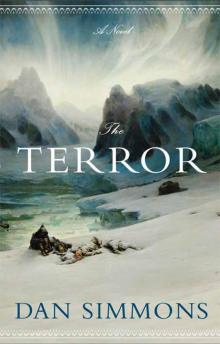 The Terror
The Terror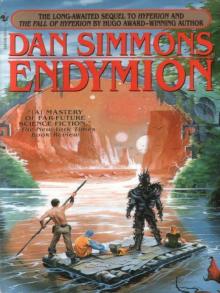 Endymion
Endymion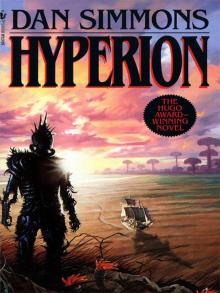 Hyperion
Hyperion The Crook Factory
The Crook Factory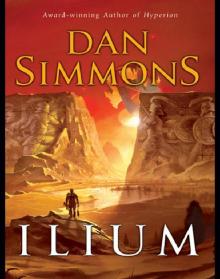 Ilium
Ilium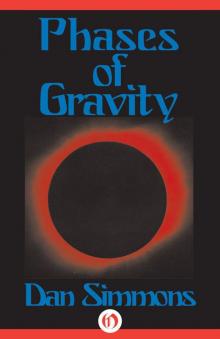 Phases of Gravity
Phases of Gravity Hardcase
Hardcase Fires of Eden
Fires of Eden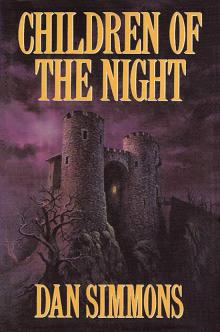 Children of the Night
Children of the Night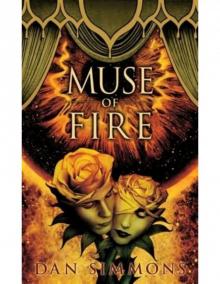 Muse of Fire
Muse of Fire Drood
Drood The Fifth Heart
The Fifth Heart Carrion Comfort
Carrion Comfort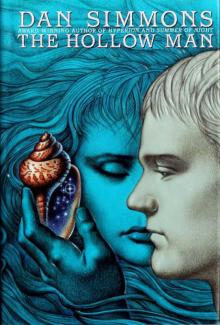 The Hollow Man
The Hollow Man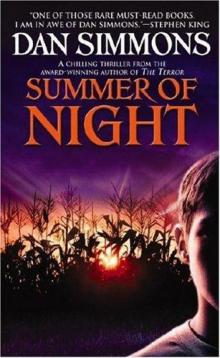 Summer of Night
Summer of Night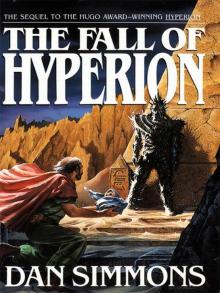 The Fall of Hyperion
The Fall of Hyperion Black Hills
Black Hills A Winter Haunting
A Winter Haunting Hard Freeze
Hard Freeze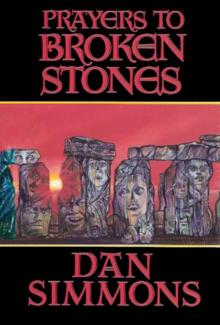 Prayers to Broken Stones
Prayers to Broken Stones Hard as Nails
Hard as Nails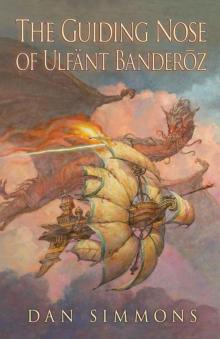 The Guiding Nose of Ulfant Banderoz
The Guiding Nose of Ulfant Banderoz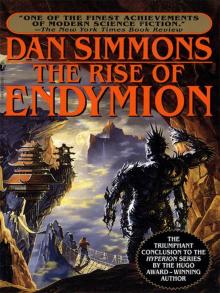 The Rise of Endymion
The Rise of Endymion Orphans of the Helix
Orphans of the Helix Lovedeath
Lovedeath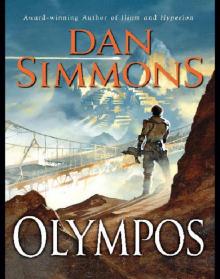 Olympos
Olympos Darwin's Blade
Darwin's Blade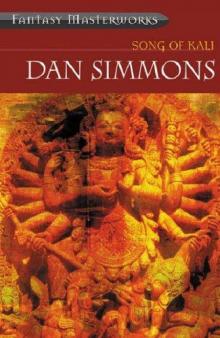 Song of Kali
Song of Kali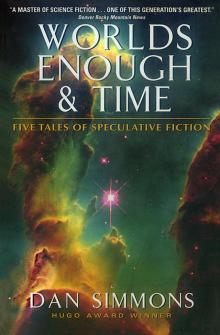 Worlds Enough & Time: Five Tales of Speculative Fiction
Worlds Enough & Time: Five Tales of Speculative Fiction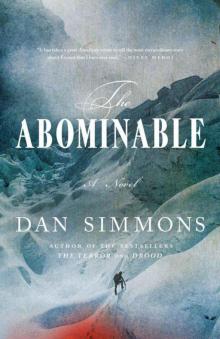 The Abominable
The Abominable The Death of the Centaur
The Death of the Centaur Hard as Nails jk-3
Hard as Nails jk-3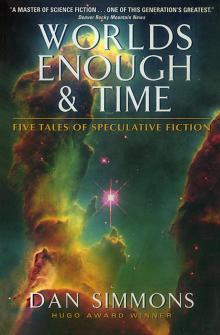 Worlds Enough & Time
Worlds Enough & Time Joe Kurtz Omnibus
Joe Kurtz Omnibus The Hyperion Cantos 4-Book Bundle
The Hyperion Cantos 4-Book Bundle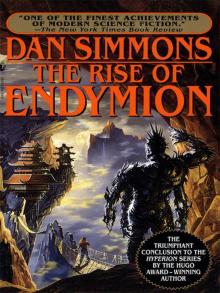 Rise of Endymion
Rise of Endymion Hard Freeze jk-2
Hard Freeze jk-2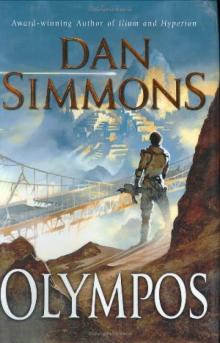 Olympos t-2
Olympos t-2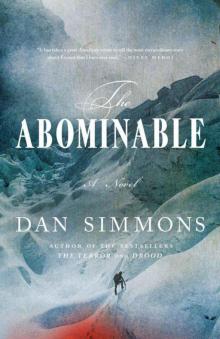 The Abominable: A Novel
The Abominable: A Novel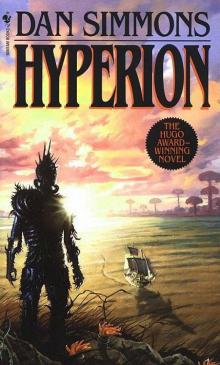 Hyperion h-1
Hyperion h-1 Remembering Siri
Remembering Siri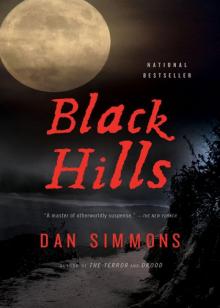 Black Hills: A Novel
Black Hills: A Novel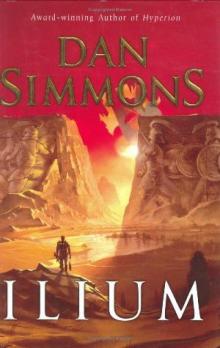 Ilium t-1
Ilium t-1 Hardcase jk-1
Hardcase jk-1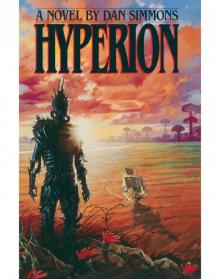 Hyperion 01 - Hyperion
Hyperion 01 - Hyperion